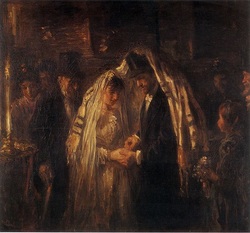
It was my first time. I had slept badly. Imagined all kinds of horrible possibilities that could happen to me. I stepped into the shower. Scrubbed till I shone. Toweled off and applied moisturizer all over, for a healthy glow. I examined every inch of my naked body in the full length bathroom mirror. After 39 years, I still looked darn nifty, considering all the shit I’d been through. My boobs were still perky, my butt was tight and shapely. No stretch marks, facial wrinkles or crows feet. No, I wasn’t glamorous, but I was wholesome. A little chubby, but hey, a natural redhead. No, visible scars or imperfections. I kept those inside myself.
As I got ready, I examined my life: Like some of my friends in high school, we were too young for marriage. He was a decent looking, tough talking guy. Didn’t have much education or ambition. As our life together bumped along, he started drinking with the boys. He became a devoted alcoholic.
We had two children a boy and girl born close together. Soon as, the youngest kid joined her brother in school, I went back to work. Did everything and almost anything. I learned shorthand and typing. Worked my way up to be the receptionist in a leading advertising agency. My husband never earned much and drank most of it. My regular salary was actually what kept us alive.
Eventually the children had grown to adulthood. My daughter got married and moved out to the West coast. I’m in Manhattan, we kept in touch. Last year, my son Larry, got into a brutal brawl, defending me from one of his dad’s drunken rages. He left, the apartment and I haven’t seen hide nor hair of him since. He’s in New York City, through, one of his former friends told me. I was devastated.
Not long after, my unfaithful, until-death-us-do-part, abusive spouse departed, six feet underground. What money I had covered the cost of his funeral with a little left over. All I owned was some Goodwill furniture in a rented apartment.
The economy nose-dived. I was terminated. Sent out resumes attended interviews all to no avail. I recalled a conversation with the agency’s Art Director. Acting on what I had learned from her, I applied and got this job.
I needed the money, and the work paid well. They wanted a mature, healthy woman. Fortunately, I filled the bill.
I began to relax physically. I dressed casually in a skirt, and sloppy sweater. No bra or panties. The elastic would leave red marks on my body. I gathered up the stuff I needed for my work, stashed them in my backpack, went off to meet my client. I put on a brave front, inwardly I was jello.
I arrived at the institution early. The art room was already crammed with about thirty students, mostly males. The instructor escorted me into the room and introduced me.
“Students, this is Gladys, our model for today’s drawing and anatomy sessions.” He pointed to a folding screen. I went behind it, removed my clothing. I put on my robe and slippers.
A chill ran through me as I emerged onto the model stand. Took off my slippers placed them on one side. Then removed my robe.
Totally naked and vulnerable I stood there in front of total strangers. I placed my robe on the modeling cube. I was in shock.
I felt 30 pairs of eyes slide over every curve and into each crevice of my body. I fixed my gaze on a crack in the wall and avoided eye contact. I said to myself, I am an object, a beautiful thing. I’m not vulnerable or unintentional. I’m nude, not naked. Intentional, purposeful, and powerful. I’m the center of focused and uninterrupted flow of energy in this entire room.
The instructor directed me to create a series of quick gesture poses of about two minutes each.
Following my first few seconds of boldness, a remaining tremor of moxie was quieted. Proudly, I had acquired composure and conquered my fears. Heck, every body is naked under their clothes. I actually enjoyed being an artist model. It was terrific and liberating experience.
The students got down to drawing. Translating what their eyes saw to their brains, into their hands, and onto the medium of paper. That was their task spread out with breaks over the next three hours.
When the final session ended. I pulled on my robe and slippers. Descended to the students level. They stood shyly by their easels and drawing boards displaying their attempts to capture my form using black or red Conté sticks.
Some released their spirits freely, slashed impressions on large sheets of cheap newsprint. Others coolly rendered visions of my form on expensive paper in large sketchbooks.
I was immersed in a kaleidoscope of visual energy. Having a live model up-close amongst them, made the students uptight.
I made only light comments of what I saw. My flippant verbal evaluations were actually arrested as I arrived at a study that revealed my entire being. I was shaken.
The artist had dived deep beneath my skin, captured the essence of a loving mother. This artist had seen my soul.
I stared for several moments. My trance was broken by the instructor as he asked, “Absorbed in that sketch?”
“Yes! which of your students drew it?”
“He had to leave for his Burger King job. Larry is a gifted young artist, about seventeen, draws like Michelangelo.”
“I’m learning about art, yes I was really taken with his drawing of me.”
“Gladys, you are a wonderful model. Would you pose this Wednesday?”
“A pleasure.”
“Good. Larry wanted you to have his sketch.” the instructor said and rolled it into a tube.
Is this serendipity, he has my lost son’s name? Before I wept happily, I had turned away. “It means a lot. Thank you.” I whispered.
John Brooke is an expatriate Canadian living by the Sea of Cortez in Baja California Sur, Mexico. He is a senior advertising scribbler and an emerging writer of poetry, flash fiction, novels, and screenplays.
As I got ready, I examined my life: Like some of my friends in high school, we were too young for marriage. He was a decent looking, tough talking guy. Didn’t have much education or ambition. As our life together bumped along, he started drinking with the boys. He became a devoted alcoholic.
We had two children a boy and girl born close together. Soon as, the youngest kid joined her brother in school, I went back to work. Did everything and almost anything. I learned shorthand and typing. Worked my way up to be the receptionist in a leading advertising agency. My husband never earned much and drank most of it. My regular salary was actually what kept us alive.
Eventually the children had grown to adulthood. My daughter got married and moved out to the West coast. I’m in Manhattan, we kept in touch. Last year, my son Larry, got into a brutal brawl, defending me from one of his dad’s drunken rages. He left, the apartment and I haven’t seen hide nor hair of him since. He’s in New York City, through, one of his former friends told me. I was devastated.
Not long after, my unfaithful, until-death-us-do-part, abusive spouse departed, six feet underground. What money I had covered the cost of his funeral with a little left over. All I owned was some Goodwill furniture in a rented apartment.
The economy nose-dived. I was terminated. Sent out resumes attended interviews all to no avail. I recalled a conversation with the agency’s Art Director. Acting on what I had learned from her, I applied and got this job.
I needed the money, and the work paid well. They wanted a mature, healthy woman. Fortunately, I filled the bill.
I began to relax physically. I dressed casually in a skirt, and sloppy sweater. No bra or panties. The elastic would leave red marks on my body. I gathered up the stuff I needed for my work, stashed them in my backpack, went off to meet my client. I put on a brave front, inwardly I was jello.
I arrived at the institution early. The art room was already crammed with about thirty students, mostly males. The instructor escorted me into the room and introduced me.
“Students, this is Gladys, our model for today’s drawing and anatomy sessions.” He pointed to a folding screen. I went behind it, removed my clothing. I put on my robe and slippers.
A chill ran through me as I emerged onto the model stand. Took off my slippers placed them on one side. Then removed my robe.
Totally naked and vulnerable I stood there in front of total strangers. I placed my robe on the modeling cube. I was in shock.
I felt 30 pairs of eyes slide over every curve and into each crevice of my body. I fixed my gaze on a crack in the wall and avoided eye contact. I said to myself, I am an object, a beautiful thing. I’m not vulnerable or unintentional. I’m nude, not naked. Intentional, purposeful, and powerful. I’m the center of focused and uninterrupted flow of energy in this entire room.
The instructor directed me to create a series of quick gesture poses of about two minutes each.
Following my first few seconds of boldness, a remaining tremor of moxie was quieted. Proudly, I had acquired composure and conquered my fears. Heck, every body is naked under their clothes. I actually enjoyed being an artist model. It was terrific and liberating experience.
The students got down to drawing. Translating what their eyes saw to their brains, into their hands, and onto the medium of paper. That was their task spread out with breaks over the next three hours.
When the final session ended. I pulled on my robe and slippers. Descended to the students level. They stood shyly by their easels and drawing boards displaying their attempts to capture my form using black or red Conté sticks.
Some released their spirits freely, slashed impressions on large sheets of cheap newsprint. Others coolly rendered visions of my form on expensive paper in large sketchbooks.
I was immersed in a kaleidoscope of visual energy. Having a live model up-close amongst them, made the students uptight.
I made only light comments of what I saw. My flippant verbal evaluations were actually arrested as I arrived at a study that revealed my entire being. I was shaken.
The artist had dived deep beneath my skin, captured the essence of a loving mother. This artist had seen my soul.
I stared for several moments. My trance was broken by the instructor as he asked, “Absorbed in that sketch?”
“Yes! which of your students drew it?”
“He had to leave for his Burger King job. Larry is a gifted young artist, about seventeen, draws like Michelangelo.”
“I’m learning about art, yes I was really taken with his drawing of me.”
“Gladys, you are a wonderful model. Would you pose this Wednesday?”
“A pleasure.”
“Good. Larry wanted you to have his sketch.” the instructor said and rolled it into a tube.
Is this serendipity, he has my lost son’s name? Before I wept happily, I had turned away. “It means a lot. Thank you.” I whispered.
John Brooke is an expatriate Canadian living by the Sea of Cortez in Baja California Sur, Mexico. He is a senior advertising scribbler and an emerging writer of poetry, flash fiction, novels, and screenplays.




 RSS Feed
RSS Feed